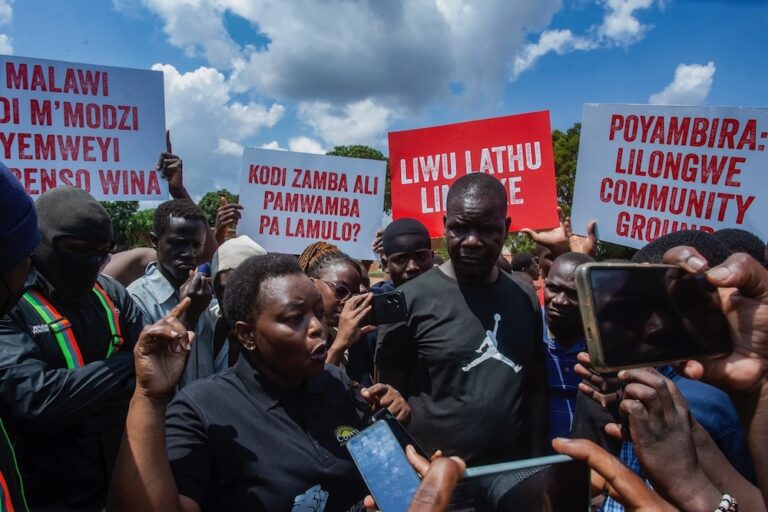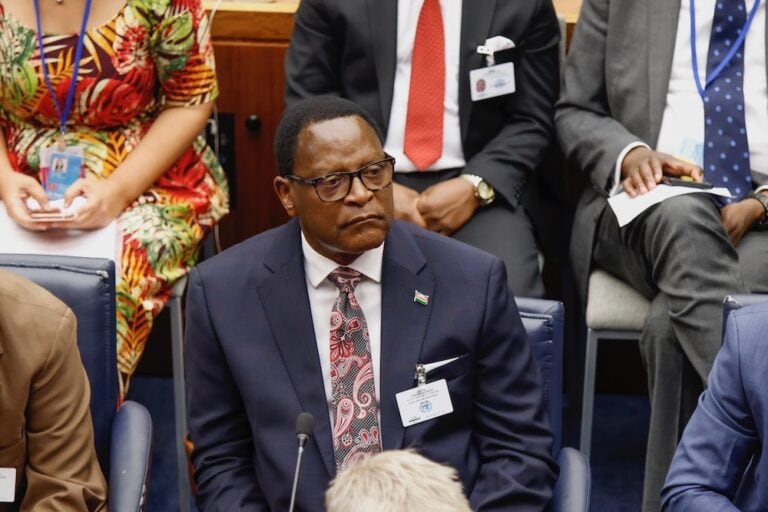(MISA/IFEX) – On 5 February 1998, a Malawi High Court Judge, after dismissing key witnesses for the “Daily Times” newspaper as being arrogant and showy, ordered the paper to pay Malawi diplomat Ziliro Chibambo K90, 000 (about US$3000) in defamation costs. The award included costs for aggravated damages as well as Chibambo’s costs of the […]
(MISA/IFEX) – On 5 February 1998, a Malawi High Court Judge, after
dismissing key witnesses for the “Daily Times” newspaper as being arrogant
and showy, ordered the paper to pay Malawi diplomat Ziliro Chibambo K90, 000
(about US$3000) in defamation costs. The award included costs for aggravated
damages as well as Chibambo’s costs of the action.
Chibambo, a former cabinet minister and now Malawi’s Ambassador to France,
sued the “Daily Times” for alleging in their December 11, 1995 edition that
he was involved in a brawl with a Blantyre businessman, known only as Thupi,
at Mount Soche Hotel over the non-settlement of debts (not previously
reported by IFEX). Chibambo denied the report, but Thupi testified in court
that he had indeed slapped Chibambo after Chibambo accused him of failing to
pay a debt owed him.
When delivering his judgment, Justice Duncan Tambala dismissed Thupi’s
evidence, saying he was “arrogant and showy when he gave his evidence. He
seems to relish the fact that he was involved in some squabble with a
government minister and the matter received some attention in the press.”
Justice Tambala also said Thupi had an ungovernable temper. He then
dismissed the “Daily Times” other key witness, Charles Simango,
Editor-in-Chief of the “Blantyre Newspaper”, because “the attitude of Mr.
Simango, the Editor-in-Chief, was unhelpful and unreasonable. He appeared
to be bent on causing great embarrassment and distress to Mr. Chibambo in
the manner he gave his evidence.”
Justice Tambala took into account the fact that the “Daily Times” continues
to stand by its story and has “categorically refused” to apologize. The
judge also considered the recent fall of the local currency, the Malawi
Kwacha, as well as the fact that the libelous article appeared in a
newspaper with a very wide circulation.


